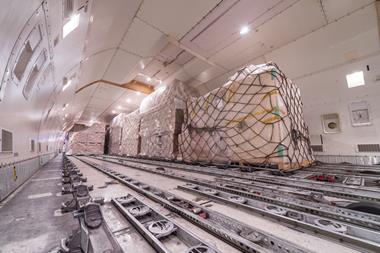FedEx founder and chief executive Fred Smith has hit out at the US president’s decision to withdraw from the TPP trade deal saying being cut off from trade would be like “trying to breath without oxygen”.
Speaking today on the Fox Business Network’s Maria Bartiromo programme, FedEx’s Fred Smith said the decision to pull out of the TPP was “unfortunate”.
Smith reasoned that “trade is what made America great” and added that the decision would actually benefit China.
He said: “About 27% of [the] entire [US] economy is related to trade – 95% of the world's consumers aren't in the US, they're elsewhere around the world, 80% of the purchasing power.
“So the US being cut off from trade would be like trying to breath without oxygen. It's an essential part of our economy.
“I think the decision to pull out of TPP is unfortunate because the real beneficiary of that is China and China has been very mercantilist, very protectionist.
“They've engaged in industrial policy to the disadvantage of American and European countries.
“But the real opportunity is to get China to take down their barriers for American goods because the countries we have a free trade agreement with, which are 20, we actually have a surplus which seems to be what President Trump is focusing on the most.”
He added: “The problem is the benefits of trade are very diffuse. The average American family gets about $13,000 worth of benefit from trade. One-third of our crops planted in the United States are exported, so it's not just manufacturers that constitutes trade.
“It's services, agriculture, and manufacturing. And about a quarter of all of our manufactured goods go to foreign countries. And we have an enormous export economy. Again it's about 12% of our GDP, 8.5% goods, 4% services. So it's not quite so simple.
“The problem with having a free trade, a bilateral agreement, it's wonderful but trade doesn't happen just bilaterally. It happens multilaterally.”
Yesterday, US president Donald Trump signed an executive order to withdraw from the Trans-Pacific Partnership (TPP).
The TPP includes 12 nations that account for around 40% of the world’s economic output and would have cut 18,000 tariffs between the countries to help boost trade.
The 12 countries that signed up for the trade pact are Australia, Brunei, Canada, Chile, Japan, Malaysia, Mexico, New Zealand, Peru, Singapore, the US and Vietnam.
The move by Trump has been described as largely symbolic given that it had yet to be ratified by congress.
This was far from certain given the strength of opposition to the deal in the country because of concerns that it could have a negative impact on US manufacturing and job losses by making foreign goods less expensive.
Smith has long been an advocate of free trade and has previously spoken of the perils of protectionism.
He warned the 2014 IATA World Cargo Symposium in Los Angeles that 'the golden age' of double-digit air cargo growth is unlikely to return due to trade protectionism, higher fuel costs and the rapid growth in bellyhold capacity.
"The big reason why international trade is not growing is the rise of protectionism, not just in China but in the rest of the world."
Smith cited a 23% increase in "trade inhibiting measures" by the leading nations since the economic crisis year of 2009, naming countries as diverse as Argentina, Russia and Canada in adopting ‘beggar thy neighbour’ restrictions on trade.
He called then on the airline industry to put pressure on politicians to end trade protectionism, which "stifles competition and innovation while limiting consumer choice".










